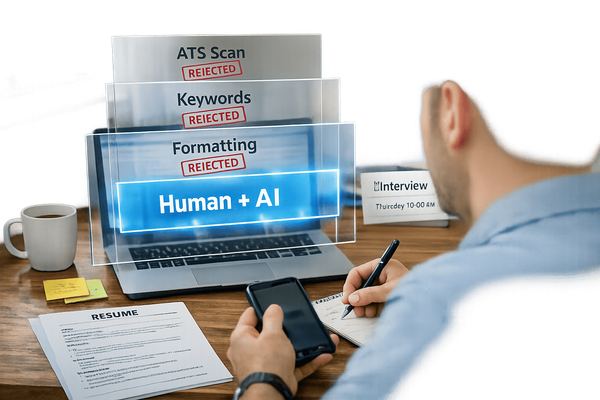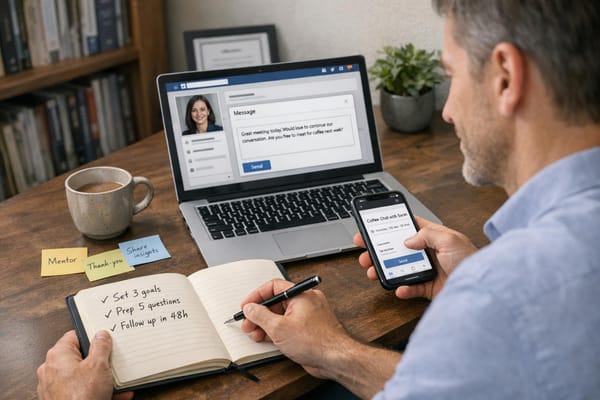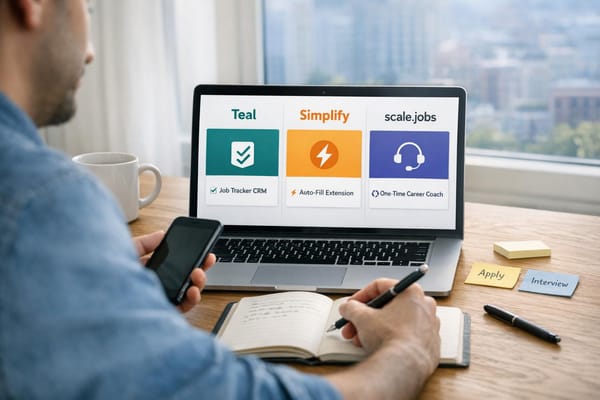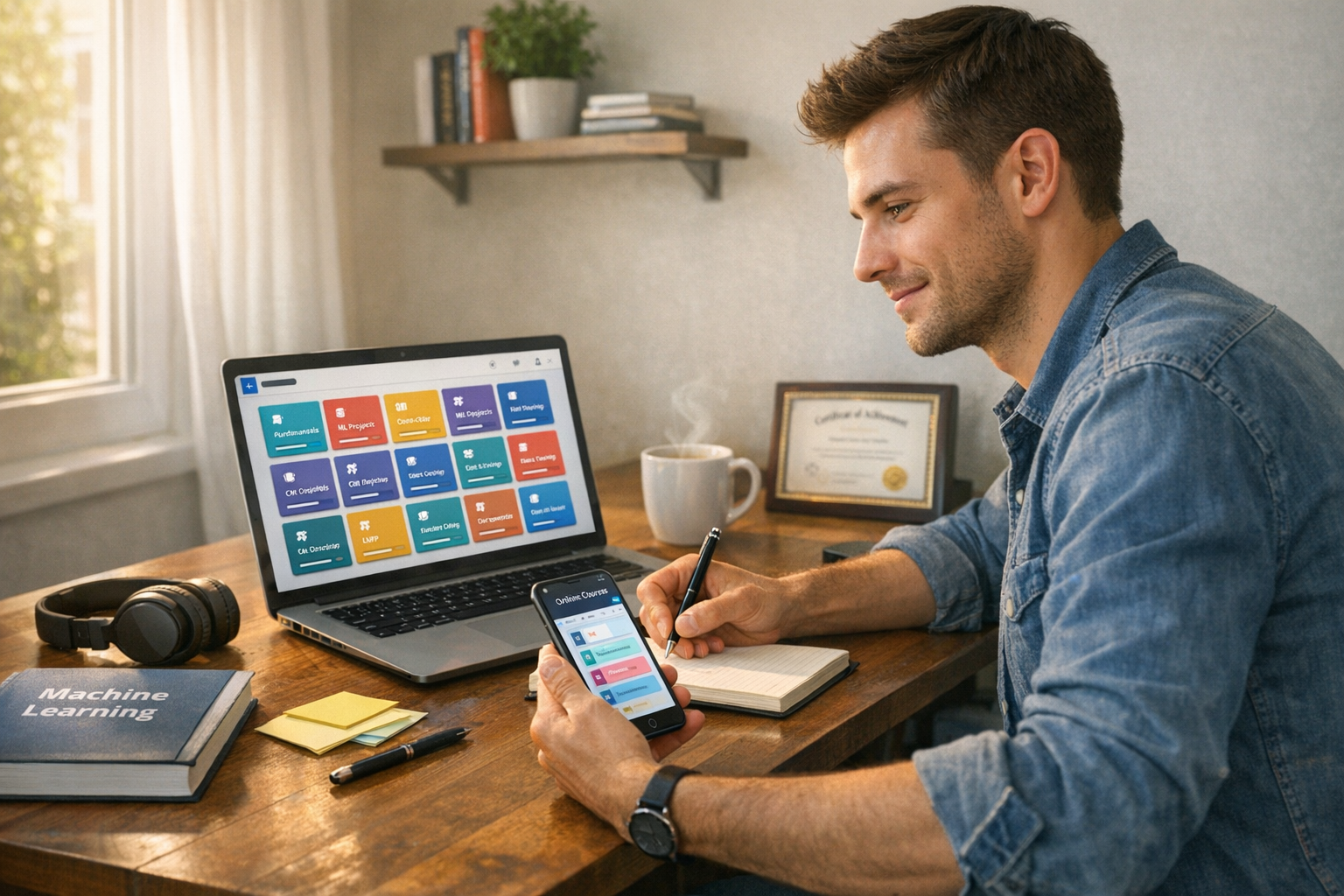Master Your Moment with These Essential Job Interview Preparation Tips

Understanding the Importance of Job Interview Preparation Job interview preparation is crucial for securing your dream job. It allows you to present yourself as the best candidate for the role confidently and effectively. By preparing for your job interview, you demonstrate your professionalism and dedication to the prospective employer. A well-prepared candidate is more likely to make a positive impression and stand out from other applicants. Job interview preparation also boosts your confidence and reduces anxiety, enabling you to perform at your best during the interview. Researching the Company and Role Researching the company and the specific role you're applying for is essential for a successful job interview. It shows the interviewer that you are genuinely interested in the company and have taken the time to understand its values, culture, and mission. Conduct thorough research on the company's background, recent news, products or services, target market, and key competitors. Additionally, analyze the job description and responsibilities to align your skills and experiences with the company's needs. Practicing Common Interview Questions Practicing common interview questions is integral to being well-prepared. Anticipate and rehearse responses to questions about your strengths, weaknesses, experiences, and achievements. Additionally, practice behavioral interview questions that assess how you have handled situations in the past. Practicing mock interviews with a friend or family member can help you refine your answers and improve your confidence. Similarly, recording and reviewing your practice sessions can provide valuable insights into your body language, tone, and overall presentation. With these essential job interview preparation tips, you can confidently navigate the interview process and increase your chances of securing the job you want.
Preparing Your Personal Pitch
Crafting a personal pitch is essential for any job interview. This brief summary showcases who you are and what you bring to the table. Start by identifying your key strengths and unique skills. Think of specific examples that illustrate your accomplishments.
Your pitch should be concise yet engaging. Aim for a duration of 30-60 seconds. Practicing your pitch will help you sound confident and natural. You might stand in front of a mirror or record yourself to evaluate your delivery.
Incorporate storytelling into your pitch. A compelling story about a challenging situation you overcame can resonate with interviewers. Make your narrative relatable and relevant to the position.
Moreover, remember to align your pitch with the company’s values and goals. Research the organization beforehand to tailor your message effectively. If you can show genuine enthusiasm for their mission, it can create a strong connection.
Lastly, solicit feedback from friends or family. They can point out areas for improvement. A solid personal pitch is a powerful tool. It sets the tone for the interview and showcases your personality, leaving a positive impression on the interviewer.
Tailoring Your Resume and Cover Letter
Your resume and cover letter serve as your first impression. To stand out, tailor them for each application. Start by analyzing the job description closely. Identify keywords and skills that the employer values.
In your resume, highlight experiences that align with the role. Use bullet points for easy reading. Focus on achievements rather than just responsibilities. Quantify your results to demonstrate your impact effectively.
For your cover letter, begin with a strong opening. Express genuine interest in the position and the company. Then, tie your experience and values to their needs. Address the hiring manager by name if possible, which shows attention to detail.
Utilize the STAR method—Situation, Task, Action, Result—to structure your examples clearly. This technique helps you articulate your thought process and showcases your problem-solving abilities. You can read more about this in our blog on writing the perfect resume.
Lastly, proofread both documents carefully. A polished presentation reflects your professionalism. Tailoring these essentials not only enhances your chances of standing out but also demonstrates your dedication to the opportunity.
Organizing Your Documents and Materials
Effective organization before an interview plays a crucial role in your performance. Start by gathering your essential documents. This includes your resume, cover letter, references, and any relevant certificates or portfolios.
Organize these documents in a folder or binder. Use clear labeling for quick access. Digital copies on your phone or laptop can also be useful. Make sure they are easily accessible and well-formatted.
Preparing a list of questions to ask the interviewer is essential. Aim for thoughtful questions that show your enthusiasm. This preparation reflects your interest in the role and allows for meaningful conversation.
Additionally, research the company's background before the interview. Familiarize yourself with their mission, recent achievements, and industry trends. This knowledge can help you tailor your responses and ask insightful questions.
On the day of the interview, consider what you’ll wear. Choose professional attire that leaves a lasting impression. Ensure your outfit is comfortable, allowing you to focus on the interview itself. With organized materials and a clear mind, you’re set for success.
Dress for Success: Choosing the Right Outfit
When preparing for a job interview, selecting the right outfit is crucial. Research the company's dress code and aim to dress one notch above it. Opt for professional attire that reflects the company culture while also showcasing your personal style. Ensure your outfit fits well and is clean and wrinkle-free. Dressing for success can boost your confidence and leave a positive impression on the interviewer.
Mastering Body Language and Non-Verbal Cues
Body language plays a significant role in how you are perceived during an interview. Practice good posture, maintain eye contact, and offer a firm handshake. Non-verbal cues, such as nodding to show attentiveness and mirroring the interviewer's posture, can convey confidence and engagement. Pay attention to your tone of voice, and remember to smile; it instantly makes you more approachable and friendly. Mastering these non-verbal cues can help you appear confident and capable.
Practicing Mindfulness and Stress Management Techniques
Job interviews can be stressful, but practicing mindfulness and stress management techniques can help you stay calm and focused. Consider using deep breathing exercises or visualization to reduce anxiety. Additionally, arrive early to the interview location to allow yourself time to relax and collect your thoughts. By practicing mindfulness and stress management, you can approach the interview with a clear and composed mind, ready to showcase your best self.
The Day Before the Interview: Final Preparations
The day before your job interview is crucial. It’s the time to double-check everything you’ve prepared. Start with your research. Review the company’s mission, values, and latest news. Familiarize yourself with the role you’re applying for. Understand how your skills align with their needs.
Next, gather your materials. Ensure you have copies of your resume, cover letter, and any documents the employer might need. Consider printing extra copies. You never know if someone else might want to take a look.
Practice your responses. Go over common interview questions. Consider using the STAR method (Situation, Task, Action, Result) for behavioral questions. It’ll help you answer confidently and clearly.
Prepare your outfit the night before. Choose attire that matches the company culture. Lay everything out, so you're stress-free in the morning.
Lastly, prioritize a good night's sleep. Rest helps you stay alert and focused during your interview. If you find yourself anxious, practice relaxation techniques. Breathing exercises can calm your nerves.
With these final preparations, you’ll feel more secure and ready to tackle your interview day!
Following Up After the Interview
Your job interview isn’t over when you leave the room. Following up is an important step in the process. Firstly, send a thank-you email to your interviewer. Aim to do this within 24 hours. Express your gratitude for their time and reiterate your interest in the position.
In your email, you can mention something specific from the conversation. This personal touch shows that you’re attentive and engaged. It also helps the interviewer remember you better.
In addition to thanking them, address any points you feel you may have overlooked during the interview. Did you forget to mention a pertinent achievement? Now’s your chance to add that detail!
Be patient after your follow-up. If you haven’t heard back within a week or two, it’s acceptable to send a brief check-in email. Keep it polite and express your ongoing interest in the role.
Remember, persistence can pay off. Your follow-up shows that you’re serious about the opportunity. Plus, it reinforces your enthusiasm for the position and the company.
Utilizing Support Services: How Scale.jobs Can Help
Job hunting can be overwhelming. Balancing applications, networking, and interview prep is challenging. That’s where Scale.jobs comes in. Our virtual assistant service is designed to make your job search smoother and more efficient.
When you utilize our service, professional assistants help craft custom resumes and cover letters tailored to the jobs you’re targeting. This means you're putting your best foot forward before even stepping into the interview.
Our team understands the nuances of job applications and the




